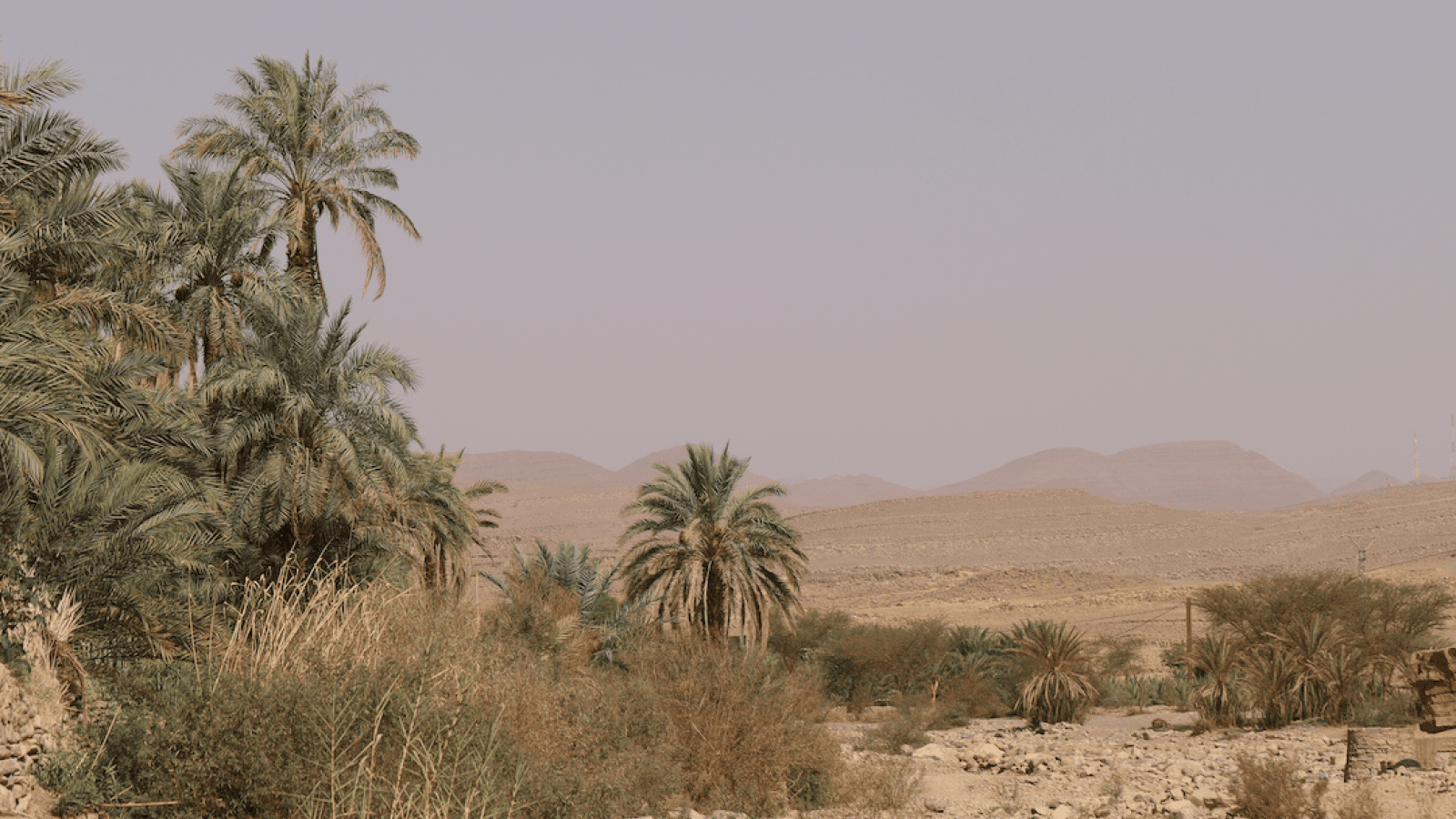Aguinane, the oasis of the cooperative's ladies
“They say it’s because of the climate, but I think that even people’s hearts have something to do with it.” says Fadma, laughing shyly. It is with these words in her native Amazigh language ‘tachelhit’, that Fadma talks about the impact of climate change and the scarcity of water in the oasis of Aguinana. Fadma invites tourists to visit the oasis, making sure that care is taken to preserve the cleanliness of this vulnerable space and that water is used reasonably to avoid waste
Fadma was born and raised in Aguinane, an oasis nestled in a canyon in the center of the Anti Atlas range of Morocco, more than 800km south of the capital, Rabat. Until a few years ago, the inhabitants of the oasis lived off agriculture, breeding, and the date trade. Regular rainfalls, a river that crosses the oasis, as well as the various water sources, have played a central role in the socio-economic balance of the villages. The role of women in maintaining this balance, as everywhere else in Morocco, has always been as discreet as it is effective. In agricultural labor, they cultivate and help maintain the various orchards. They draw and transport water to homes. They are responsible for the local produce for the weekly markets, and they are also responsible for the household chores and taking care of the children.
Intense heatwaves and years of prolonged drought have put Morocco at the forefront of climate change. This impact is all the more important as it affects rural areas where the issue of water is pushing the population to look for alternative solutions. While the COVID health crisis has disproportionately affected rural women, the effects of climate change in some regions, such as oases, put them in an even more worrying situation. Their sources of income are dwindling and they are powerless in the face of waves of migration of their children who leave villages and oases to other regions or to Europe in search of a better life.
Since May 2021, two oases in Morocco, including that of Aguinane, have been at the center of a project to promote integrated water resources management. It is implemented by the Association of Teachers of Life and Earth Sciences and funded by the European Union. The 3-year project targets women and young people in particular, and aims to implement a model whose lessons can be replicated in other regions. Fadma Tamansourt is currently a beneficiary. Together with the support of some other women, she structures her programme around two important themes: the creation of income-generating activities and the waste recovery with the ambition of achieving a zero waste oasis. A rural women’s cooperative has been set up. Thanks to the support of dedicated expertise, the women learn to add value to the products they produce: dates, coffee made from date stones, henna, bread, medicinal plants abounding in the region, as well as other specialties of the Anti Atlas.
Through these initiatives, Fadma and her friends want to expose young people to the many entrepreneurial opportunities in the field of rural tourism, transport and other economic activities. The oases have been a space of fragile equilibrium, which has been maintained for millennia as a result of the combination of human agronomic genius and skills. Scarce resources of nature, climate change and socioeconomic changes call for new solutions that the project tries to bring by actively associating the inhabitants and in particular the young people. These activities also complement the many programs and projects of the European Union and its member states to support Morocco towards ecological transition. A major event was the launch of the Morocco-EU green partnership initiative at the end of June.
The EU-Morocco initiative« Green Partnership »
The European Union and the Kingdom of Morocco agreed to build a Green Partnership together. The collaboration will reflect the strong political convergence of the two parties with respect to environmental, climate and sustainable development issues. The work toward establishing the Green Partnership also underscores the importance of developing joint and mutually beneficial approaches in areas which the two parties deem to be priorities. It demonstrates the need to work together to jointly respond to the multiple challenges of the post-Covid recovery phase by promoting a gradual, responsible transition to societies and consumption models which are more sustainable over the long term. The “green recovery” targets the well-being of current and future generations. It enables the planning of appropriate responses in line with Agenda 2030 and the sustainable development objectives. In addition, it will reflect the importance for the EU and the Kingdom of Morocco of implementing the Paris Agreement on climate change by placing the energy transition to a clean model, sustainable water and waste management, the fight against air pollution and the protection of biodiversity at the heart of their policies and investments.




























 Syria
Syria 




